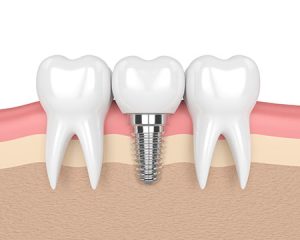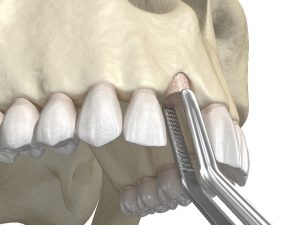
While losing your teeth as a child is a right-of-passage, having a missing tooth as an adult is not nearly as cute. Feeling self-conscious about a missing tooth is common, yet fortunately, this discomfort doesn’t have to be permanent. Dr. Robert Milner, a distinguished dentist in Mission Viejo, has successfully helped many patients reclaim their smiles with dental implants. These prosthetics, designed to mimic real teeth, are surgically placed into the jawbone and have the potential to last a lifetime.
The Advantages of Dental Implants
The absence of one or more teeth can make eating a challenge, possibly causing harm to your jaw as you alter your bite to compensate. A dental implant enables proper chewing, helping you avoid relying on just one side of your mouth for eating.
Furthermore, losing teeth might impair your speech. If you’ve noticed slurring or a slight speech impediment since losing a tooth, a dental implant can rectify these issues.
Naturally, the aesthetic impact is a significant concern for most. A gap from a missing tooth can detract from your smile’s appeal, but a prosthetic can seamlessly fill this void. Additionally, dental implants can prevent jawbone erosion that leads to a “sunken” facial appearance by maintaining the structural integrity of your jaw.
Dental Implant Procedure Overview
Receiving a dental implant typically involves two appointments. During the initial visit, Dr. Milner will administer anesthesia and perform the oral surgery necessary to insert a titanium post, akin to a screw, through your gums into the jawbone at the missing tooth’s location. Although you’ll need to wait a few months to ensure the area has healed and the post is secure in the jawbone, Dr. Milner will secure a temporary tooth during this period to conceal the vacant space.
Once healed and ready for the final steps, Dr. Milner will affix the permanent implant to the post. With a variety of implants available, you can choose one that closely matches the size and color of your natural teeth, making the implant virtually indistinguishable to others.
Dental Implant Recovery and Results
Following a dental implant appointment, your mouth may be sore and tender. Dr. Milner can prescribe pain medication to help limit discomfort. You may also use an ice pack to help relieve swelling, but only for several minutes at a time. Temporarily modifying your diet to include soft, mild-temperature foods can avoid triggering sensitivity. Use special mouthwash to keep your mouth clean and free of infection.
Your implant can last multiple decades with good care and proper oral hygiene. Be sure to brush and floss your implant like you would your other natural teeth. Avoid biting on hard objects that could prematurely chip or break your implant.
Evaluating Your Candidacy for Dental Implants

Individuals in good general health missing one or several teeth are typically excellent candidates for dental implants. Dr. Milner can assess your suitability for the procedure during a consultation. For those missing several adjacent teeth, he may suggest an alternative, such as an implant-supported bridge.
Bone Grafting
If Dr. Milner determines that you do not have sufficient jawbone to insert a dental implant, he can transplant bone from another part of your body to bolster the jaw. This process is known as bone grafting.

Not all patients need bone grafting ahead of receiving a dental implant, but many do. That is because the longer a tooth is missing in the mouth, the longer the jawbone can atrophy. When the bone does not have a tooth to support, it can shrink and/or get weaker in that area. Since the bone must be dense enough to accept a titanium post, Dr. Milner performs bone grafting when significant atrophying has occurred.
With dental procedures, bone is usually taken from the back of the jaw, the hip or the tibia. You may prefer to use bone from an animal or cadaver rather than your own bone to avoid having surgery on two parts of the body. Both approaches are considered highly effective. Once the bone graft has been placed, it prompts the bone tissue in this area to grow and regenerate. It can take a few months for this process to be complete. Only once the grafting has healed and the jawbone is strong enough can the process of adding a dental implant begin.
Tissue Grafting
Because dental implants are less likely to be successful for patients without adequate gums, if you have receding gums, Dr. Milner may suggest soft tissue grafting ahead of scheduling a dental implant procedure. This common surgery involves taking gum tissue from one part of the mouth and transplanting it to where the gums have receded.
Replacing gum tissue where the dental implant will go serves not only a functional purpose, but also an aesthetic one. If the gums are not high enough to cover the abutment that holds the prosthetic tooth, it is plainly obvious that the tooth is not real.
When a tooth goes missing, it is common for the gums to recede. Receding gums can also be caused by periodontal disease, rough brushing habits, genetics, injury and teeth grinding.
After tissue grafting, you should use a special mouthwash to keep your mouth clean and bacteria free during recovery since the area should not be flossed. Eat a diet of soft foods for at least a couple weeks. Once the tissue has fully healed, Dr. Milner can proceed with scheduling and performing dental implant surgery.
Dental Implants FAQs
What are some of the advantages of dental implants?
Dental implants are the closest you can get to a natural tooth. The titanium rod or post of the implant functions like a natural tooth root, and the crown placed on top of the rod or post resembles a healthy tooth.
Implants recreate the appearance of a complete, healthy smile. They enable comfortable biting, chewing and speaking. Implants also promote the health and strength of the jawbone. They are strong, durable and cannot decay.
Are dental implants safe?
For suitable candidates dental implants are a proven safe solution for replacing teeth, but every type of surgery carries with it some risk. Possible outcomes include infection at the implant site, potential injury to the surrounding structures such as teeth, or nerve damage. Dr. Milner is well-experienced with implant dentistry, but it’s important to outline the very unlikely risks associated with this procedure.
How many teeth can dental implants replace?
Dr. Milner can replace a single tooth, multiple teeth or all of the teeth in the upper or lower jaws with dental implants. A single implant post can replace a single tooth. Two implant posts can support a dental bridge or partial denture to replace several teeth. Between two to four implants can support a full denture that replaces all of the top or bottom teeth.
If I wear dentures, can I get dental implants?
It is very popular for denture wearers to have their dentures anchored to several implant posts. This enhances the stability of the dentures and prevents them from slipping or shifting around in the mouth or making clicking noises. Implant-supported dentures are only removable by a dentist.
How long will it take to get a dental implant?
The treatment timeline varies by patient, but on average it takes approximately three to six months to get an implant. The first step is an oral surgery procedure to install the implant post in the jawbone; then, it is left to heal. A few months later, the top of the post is mounted with a customized artificial tooth.
How long do dental implants last?
With proper care and regular dental checkups, dental implants can last for many years. A study of dental implant durability over the course of 17 years showed that 93% didn’t require replacement.
How much will my implants cost?
The cost of dental implants varies depending on several factors, including the number of dental implants needed. A recent study showed that the average cost of a dental implant ranges from $1,000 to $3,000.
Another factor for dental implants is that not all insurance companies cover them. If your insurance plan doesn’t cover implants, don’t worry, our office provides financing options. Contact us today to learn about them.
Do dental implants hurt?

Dr. Milner numbs your mouth with a local anesthetic during the surgery to keep you comfortable and relaxed during your procedure. He typically prescribes pain medication that you may take after receiving a dental implant. You should find that this is sufficient to help manage post-surgery discomfort. Eating soft foods or chewing on the other side of the mouth can also reduce the incidence of pain.
How should I take care of my dental implants?
Dental implants should be treated the same as your normal teeth. You should brush and floss them regularly to keep them clean and secure in your mouth. If you do not practice proper oral hygiene, you increase your risk of losing further teeth, which may lead to further dental implants.
Dr. Robert Milner: The Trusted Choice for Implant Dentistry
With Dr. Milner, you can expect safe and natural-looking implant results. If you have experienced tooth loss and are looking for a long-lasting solution, contact our Mission Viejo dental practice today. To schedule an appointment please call 949-859-8899.




